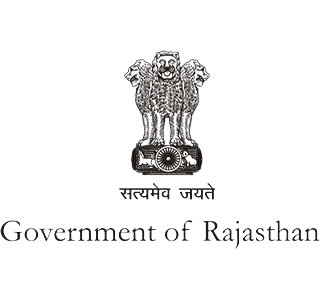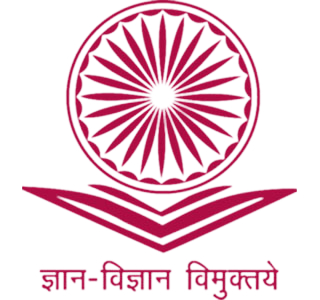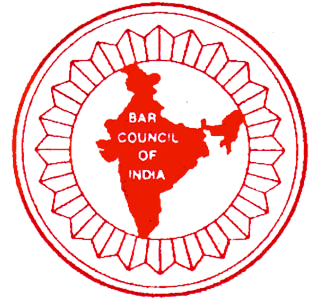LLM (Master of Laws)
Specialization: International law / Corporate law / Intellectual Property Right /
Tort & Crime / Labour Law
Overview
LL.M. is a Master degree in Law. This program is designed for those students who wish to increase their understanding of legal principles and for those who wish to enhance their knowledge in Academics and Research.
The LLM, or Master of Laws, is a postgraduate degree program designed for individuals who have completed their undergraduate legal education and wish to further specialize in a specific area of law or enhance their legal expertise.
Overall, the LLM program offers a rigorous and specialized educational experience for individuals seeking advanced knowledge, skills, and credentials in the field of law. It provides a pathway for legal professionals to deepen their expertise, expand their career opportunities, and make meaningful contributions to the legal profession and society.
Scope of LLM (Master of Laws)
According to US Bureau of Labor Statistics, The employment outlook for computer and information technology occupations is exceptionally promising, with a projected growth rate significantly higher than the average across all occupations from 2022 to 2032. On average, approximately 377,500 job openings are anticipated each year within these fields. This surge is attributed to both the expansion of employment opportunities and the imperative to fill positions vacated by workers departing these occupations permanently. The robust projection underscores the ongoing demand for skilled professionals in the computer and information technology sectors over the next decade.
Department
at a Glance
- Program Overview
- Accreditation and Recognition
- Faculty Expertise and Diversity
- Curriculum Highlights
- Specializations and Concentrations
- Experiential Learning Opportunities
- Career Support Services
- Facilities and Resources
- Admission Process and Requirements
- Student Organizations and Activities
Exclusive
Labs
- Microsoft Innovation Center
- Microsoft - Global Technical Support Center (GTSC)
- IBM Software Lab For Emerging Technologies
- Oracle Academy Lab
- Unisys Innovation Labs
Your Department in a Nutshell
- Achievements
- Patents
- Research
- Expert Sessions
- Activities
- Labs
Eligibility & Fee Details
For Indian Students : Pass with Minimum 50% aggregate marks in LL.B.
Course Fee | |
|---|---|
Admission Fee (one time) | 5000/- (at the time of admission) |
Tuition Fee | 12000/- Per Semester |
Examination Fee | 3000/- Per Semester |
Development Fee | 2000/- Per Semester |
Caution Money (one time) | 3000/- (Refundable) |
Scholarship Criteria
Based on performance in qualifying exam
| % in Qualifying Class [1] | Scholarship on Tuition Fees | |
|---|---|---|
| Above 90% | 20% | |
| 85% – 89.99% | 10% | |
| 75% – 84.99% | 5% | |
- Early Admission Benefits Upto Rs. 3000/- Admission Taken Before 15th July 2024
- Scholarship in Tuition fee (for all 4 semesters): up to 20% based on academic performance.
Why Join LLM (Master of Laws)?
Joining an LLM (Master of Laws) program offers numerous benefits and opportunities for individuals looking to advance their legal education and career prospects. Here are several compelling reasons to consider pursuing an LLM degree:
- Specialization: An LLM program allows you to specialize in a specific area of law that aligns with your interests, career goals, and professional aspirations. Whether you're passionate about international law, human rights law, corporate law, intellectual property law, environmental law, or another field, an LLM program provides the opportunity to deepen your expertise and knowledge in that area.
- Advanced Education: An LLM degree offers advanced legal education beyond the foundational knowledge acquired during undergraduate studies or previous legal training. The program explores complex legal concepts, theories, doctrines, and practical applications, challenging students to engage critically with legal issues and expand their analytical skills.
- Career Advancement: Pursuing an LLM degree can enhance your career prospects and open doors to a wide range of opportunities in the legal profession, academia, government, international organizations, non-profit sector, and private industry. LLM graduates are well-equipped to pursue roles as attorneys, legal advisors, judges, legal scholars, policymakers, researchers, educators, and consultants.
- Global Perspective: Many LLM programs offer an international or comparative focus, providing students with exposure to diverse legal systems, cultural contexts, and global perspectives. Studying alongside classmates from different backgrounds and nationalities enriches the learning experience, fosters cross-cultural understanding, and prepares graduates for careers in a globalized world.
- Networking Opportunities: LLM programs provide valuable networking opportunities with legal professionals, academics, policymakers, alumni, and industry leaders. Through seminars, conferences, workshops, guest lectures, internships, and alumni events, students can expand their professional networks, build relationships, and access career resources and mentorship opportunities.
What makes Department
of LLM (Master of Laws) unique?
The uniqueness of the Department of LLM (Master of Laws) within an educational institution often lies in its distinctive features, offerings, and contributions to legal education and scholarship. Here are some factors that may make the Department of LLM unique:
Placements





Rankings/ Recognition and Accreditation



Our Students Speak

Thank You.

Thank You.

How to Apply
Steps to Follow
Frequently Asked Questions
LLM (Master of Laws) at Career Point University
The LLM program typically spans one to two years of full-time study, depending on the structure and requirements of the program.
Prospective students must have completed their undergraduate legal education from a recognized institution. They may also need to meet minimum academic requirements and any other criteria specified by the university.
Career Point University may offer specializations in areas such as international law, corporate law, intellectual property law,Tort & Crime, Labour Law or other fields based on faculty expertise and student demand.
Yes, Career Point University may provide opportunities for LLM students to gain practical experience through internships, externships, legal clinics, moot court competitions, and research projects.
LLM students have access to libraries, research centers, legal databases, computer labs, study spaces, and other resources to support their academic and research needs.
Graduates of the LLM program can pursue careers as attorneys, legal advisors, corporate counsels, judges, legal consultants, policymakers, researchers, educators, or pursue further specialization through doctoral studies.
Career Point University may offer scholarships or financial aid to eligible LLM students based on academic merit, financial need, or other specified criteria. Students are encouraged to inquire about available opportunities through the university’s financial aid office.
The admission process typically involves submitting an application form, academic transcripts, letters of recommendation, a statement of purpose, and any other documents requested by the university. Admission decisions are based on a holistic review of the applicant’s profile.
LLM graduates may be eligible to practice law in certain jurisdictions, depending on the specific requirements and regulations of each jurisdiction. Graduates may need to pass a bar examination and fulfill other licensing requirements to practice law professionally.
Career Point University offers various support services to LLM students, including academic advising, career counseling, mentorship programs, networking events, and professional development workshops to help students succeed academically and professionally.






